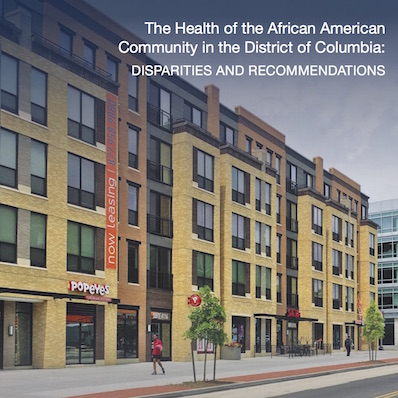 The Georgetown University School of Nursing and Health Studies has released a new report showing stark racial disparities in health among residents of the District of Columbia. The report was prepared for the D.C. Commission on African American Affairs.
The Georgetown University School of Nursing and Health Studies has released a new report showing stark racial disparities in health among residents of the District of Columbia. The report was prepared for the D.C. Commission on African American Affairs.
The District is highly segregated with African Americans making up 90 percent of the population in eastern neighborhoods and 10 percent or less of the population in more prosperous areas of the city.
Here are some examples of the racial health disparities published in the report:
- The survey found that within a 12-month period, 75,533 residents of the District were hospitalized. Blacks, who are 46 percent of the District’s population, represented 73 percent of all patients hospitalized.
- Black men in the District have a life expectancy that is 15 years lower than for White men.
- The infant mortality rate for Black babies is nearly six times the rate for White babies.
- The homicide rate for Blacks is 10 times the rate for Whites.
- Blacks are two or more times as likely as Whites to die from stroke, heart disease, diabetes complications, or prostate cancer.
 Brian Floyd, assistant dean of academic affairs at the Georgetown University School of Nursing and Health Studies, notes that “sharing evidence of the devastating effects of health disparities in DC, as well as offering solutions to improve health for all, was our goal. Also our hope is this report will serve as a useful tool to engage and inform local government, business and community leaders prompting them to embrace a health in-all-policies approach, essential for innovative, equity-enhancing strategic solutions.
Brian Floyd, assistant dean of academic affairs at the Georgetown University School of Nursing and Health Studies, notes that “sharing evidence of the devastating effects of health disparities in DC, as well as offering solutions to improve health for all, was our goal. Also our hope is this report will serve as a useful tool to engage and inform local government, business and community leaders prompting them to embrace a health in-all-policies approach, essential for innovative, equity-enhancing strategic solutions.
The report, The Health of the African American Community in the District of Columbia: Disparities and Recommendations may be accessed here.











My notion from reading this study is that the heath disparities are likely the same in every inter-city within major cities across America and food desserts in these communities coupled with other factors are what’s culpable.